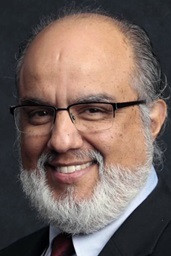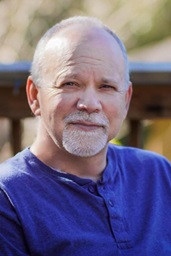At least six parsonages in the Greater New Jersey Annual Conference are uninhabitable after Hurricane Sandy, and Bishop John Schol expects that number to rise.
“The word from one pastor in Atlantic City was that all the furniture in his house was overturned by floodwaters,” Schol told United Methodist News Service on Nov. 2. That pastor, the Rev. William McKinley Williams III, just began an appointment at Asbury United Methodist Church there on July 1.
An early response team will begin work Nov. 5 on three of the parsonages in the Bellmar area, a hard-hit part of Central New Jersey, he said. The Rev. Tom Hazelwood, U.S. disaster response coordinator for the United Methodist Committee on Relief, also will meet with conference officials early next week.
“I’m very encouraged by what I’m beginning to see already, very encouraged by the connection,” he said. He noted that church staff from Mississippi and Louisiana also have offered to help New Jersey come up with a comprehensive emergency response and long-term recovery plan. “We’ll be at this for years, helping to rebuild communities.”
On Nov. 1, the bishop met with clergy in the Cape Atlantic District, where at least two parsonages are unusable, and more damage is expected to be uncovered once access to the barrier islands is allowed. The way the storm hit, he explained, that section got the back end, with less wind but more flooding.
Wind was the problem elsewhere, however. “In the middle part of the state, particularly along the coast, 80 percent of the people are still without electricity,” Schol reported. “Our conference office is still down.”
Lack of flood insurance
A skeleton crew visited the office Nov. 2 to pay the conference’s group insurance bill. But insurance coverage raises a serious issue. “Flood insurance is so expensive that the churches don’t have flood insurance unless they’ve picked it up themselves,” the bishop explained. He believes that few churches have purchased additional coverage.
Schol said he was “buoyed” by the sight of United Methodists volunteering at Red Cross shelters and the fact that 5,000 flood buckets are making their way to New Jersey.
In a letter posted Nov. 2 on the conference’s Facebook page, the bishop wrote about meeting the Rev. Hector Burgos and other church members the previous day as they volunteered at a shelter outside Atlantic City.
“This shelter has had as many as 900 people. It was amazing to watch our fellow disciples interact with the guests and hear how grateful the shelter staff was for their ministry. We had prayer with kitchen workers and other staff, and we listened to the stories of people who are trying to figure out how to put their lives together. The night before, Pastor Burgos and the disciples of Oasis Church held a Halloween party at the shelter for 150 children.”
Throughout the week, more New Jersey congregations have opened their facilities as “warming and charging” stations for neighbors and members without power.
Confronting limitations
The Rev. Joe Monahan of Succasunna United Methodist Church in Roxbury Township, Morris County, reported on the conference’s Tumblr account that a “large pine tree fell at church and took electric service with it. Parsonage roof suffered some damage, some brave trustees plus others from the church and the community patched it with a tarp.
“All members I’ve spoken to have come through with relatively little damage, though many are struggling with the current conditions — especially those in poor health or who are oxygen-dependent. The limited availability of gasoline is becoming major concern for those who initially thought they’d be fine with portable generators.”
Since some, including the parsonage, retained electricity, “we’re doing what we can to connect people in need of showers, meals and heat to our people who have opened their homes,” Monahan said.
“We are also working with the clergy council in the township to provide updates on local houses of worship that are able to be open as warming/charging centers. Among them is Lower Berkshire Valley UMC, also in Roxbury.”
How to respond
A special relief fund for the Greater New Jersey Conference has been created for Hurricane Sandy response. People within the Greater New Jersey Conference are encouraged to send donations directly to this fund. One hundred percent of the donations will go to relief work, including responses to church and church property damages in the conference. Donations can be sent to GNJ Sandy Relief Fund, 1001 Wickapecko Drive, Ocean, N.J. 07712-4733.
People outside the Greater New Jersey Conference should direct donations to the United Methodist Committee on Relief through Advance #3021787. Donations can be made online at www.umcor.org or by calling (800) 554-8583. Checks payable to Advance GCFA, with the Advance number noted on the memo line, can be dropped in church offering plates or mailed to Advance GCFA, P.O. Box 9068 GPO, New York, N.Y. 10087-9068. UMCOR funds are used for humanitarian relief and are not applied to property damage.
*Bloom is a United Methodist News Service multimedia reporter based in New York. Follow her at http://twitter.com/umcscribe.
Like what you're reading? Support the ministry of UM News! Your support ensures the latest denominational news, dynamic stories and informative articles will continue to connect our global community. Make a tax-deductible donation at ResourceUMC.org/GiveUMCom.




